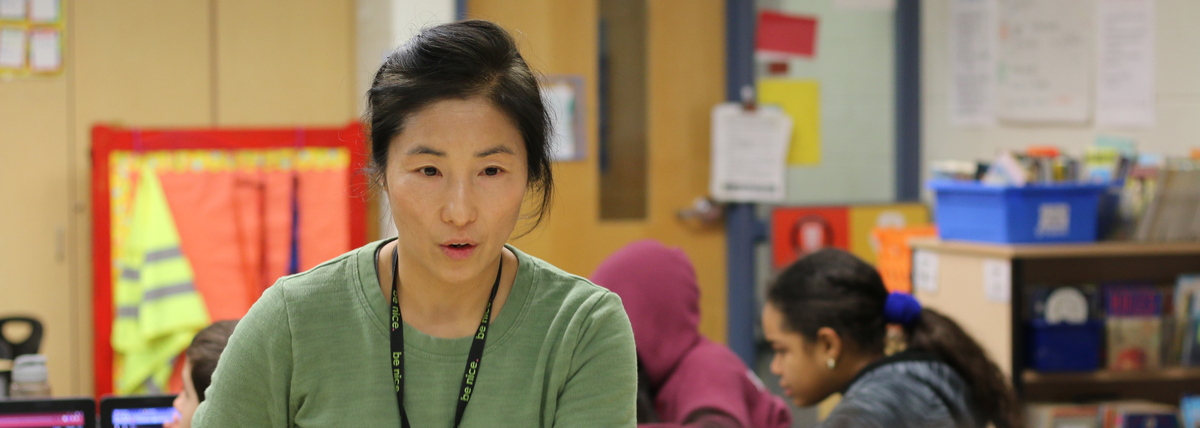It was mid-morning on a mid-October day and Sung Pak was headed to the playground at César E. Chávez Elementary School to escort her students back to their classroom after a boisterous recess break.
With a smile on her face, she shepherded her fifth graders into a single line and led them from outside to in, then up the stairs to the third floor and finally back to their home base, her brightly decorated classroom.
As the students settled back in, she called out and thanked them for their return to quiet attentiveness. And then she welcomed two scholars to the front of the room.
“Thank you, Michael and Destiny for leading us to be ready for learning,” she said.
The two students then led the class, and Pak, in a series of what Pak calls mindfulness breathing exercises, part of a new, school-wide practice.
Later, Pak talked about why the exercise is an important part of her classroom structure.
“It helps students calm down after recess and get them ready to learn,” she said. “We’ve been doing it since September, and we encourage students to practice it not just in class, but also outside at recess or whenever they are upset over something.”
Getting upset, Pak added, is not an uncommon part of the fifth-grade experience.
“One challenging aspect about this age is that some are tough and come with traumatic family experiences,” she said. “They display anger and hurt that they’ve experienced. At times, it’s very difficult to de-escalate the situation, but I have to breathe too. And I rely on my faith to help me through these times.”
And, she said, the good far outweighs the bad when it comes to fifth graders.
“They really are great because they are old enough to understand how life works,” she said. “They can have life conversations, can understand humor, and can often be reasoned with. And they are still ‘kid-enough’ to love recess, fun, and teachers.”
As an immigrant, Pak said she has a lot of empathy for her many students who also have close connections to the immigrant experience.
She was 10 when she came to the U.S. with her family, a time that she recalled as scary, and exciting but also safe, because of the presence of her mom, dad and five siblings.
She knew no English, but learned quickly as part of Kelloggsville Public Schools, and soon she became one of the family’s de factor translators.
“I know the hardship and the obstacles that immigrants face every day,” she said. “I remember when I was a teenager following my dad to various errands to translate. It was so stressful sometimes seeing my dad treated badly by people.”
After graduating from Kelloggsville High School, Pak went on to Western Michigan University for her teaching degree and then earned a master’s degree in the Art of Teaching at Aquinas College.
That higher education has helped shape who she is as a teacher, but she said her immigrant experience also has been an important touchstone during her almost three decades of teaching (her entire teaching tenure has been in Grand Rapids Public Schools, including at Chávez since 2010).
“I can relate to my students’ daily lives as well as what their parents go through,” she said. “I think this makes me a better teacher because I went through what they are going through. I know their struggles, their feelings and what it takes to make it work and the hard work that goes with it. I want them to know that they can succeed in life. But it takes patience, hard work and perseverance.”
She also praised the entire staff at Chávez, noting that everyone works together both to promote a positive school culture and also to consistently refine the craft of teaching.
“It’s a kind and friendly place,” she said with a smile.
-
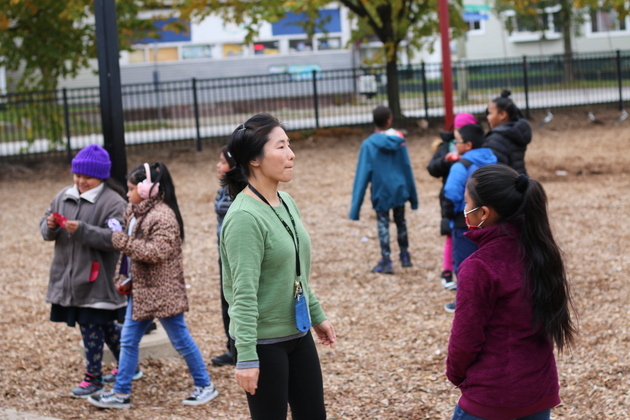 Click to see a larger version
César E. Chávez Elementary School teacher Sung Pak on the playground preparing to shepherd her students back to her classroom
Skip to end of gallery
Skip to start of gallery
Click to see a larger version
César E. Chávez Elementary School teacher Sung Pak on the playground preparing to shepherd her students back to her classroom
Skip to end of gallery
Skip to start of gallery
-
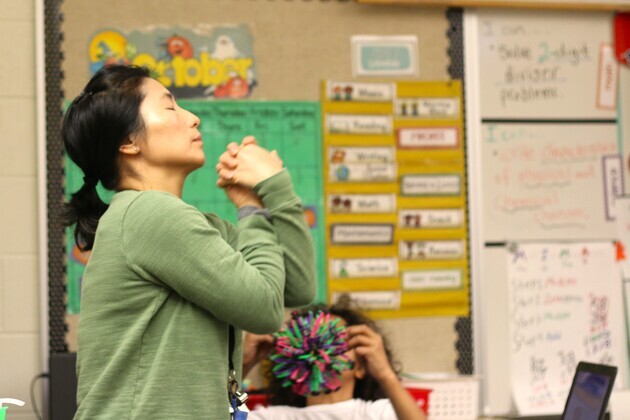 Click to see a larger version
César E. Chávez Elementary School teacher Sung Pak joins her students in a breathing exercise meant to transition students from recess to learning
Skip to end of gallery
Skip to start of gallery
Click to see a larger version
César E. Chávez Elementary School teacher Sung Pak joins her students in a breathing exercise meant to transition students from recess to learning
Skip to end of gallery
Skip to start of gallery
-
 Click to see a larger version
César E. Chávez Elementary School Sung Pak calls on a student during a math exercise
Skip to end of gallery
Skip to start of gallery
Click to see a larger version
César E. Chávez Elementary School Sung Pak calls on a student during a math exercise
Skip to end of gallery
Skip to start of gallery
-
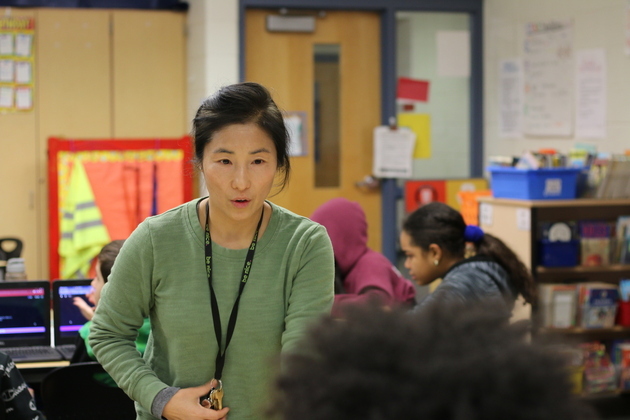 Click to see a larger version
After almost three decades as a GRPS teacher, César E. Chávez’ Sung Pak still loves working with her students
Skip to end of gallery
Skip to start of gallery
Click to see a larger version
After almost three decades as a GRPS teacher, César E. Chávez’ Sung Pak still loves working with her students
Skip to end of gallery
Skip to start of gallery
-
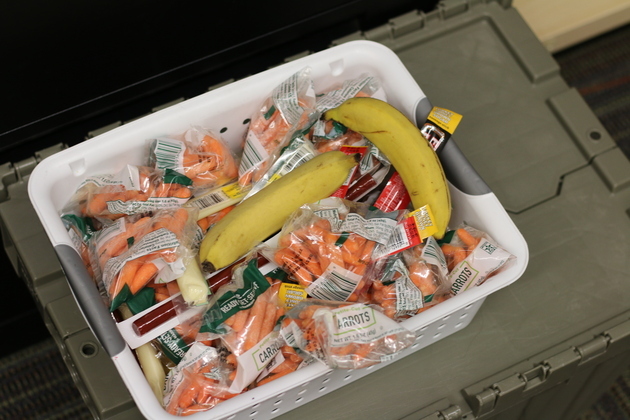 Click to see a larger version
Snacks help fuel fifth graders at César E. Chávez Elementary School
Skip to end of gallery
Skip to start of gallery
Click to see a larger version
Snacks help fuel fifth graders at César E. Chávez Elementary School
Skip to end of gallery
Skip to start of gallery

